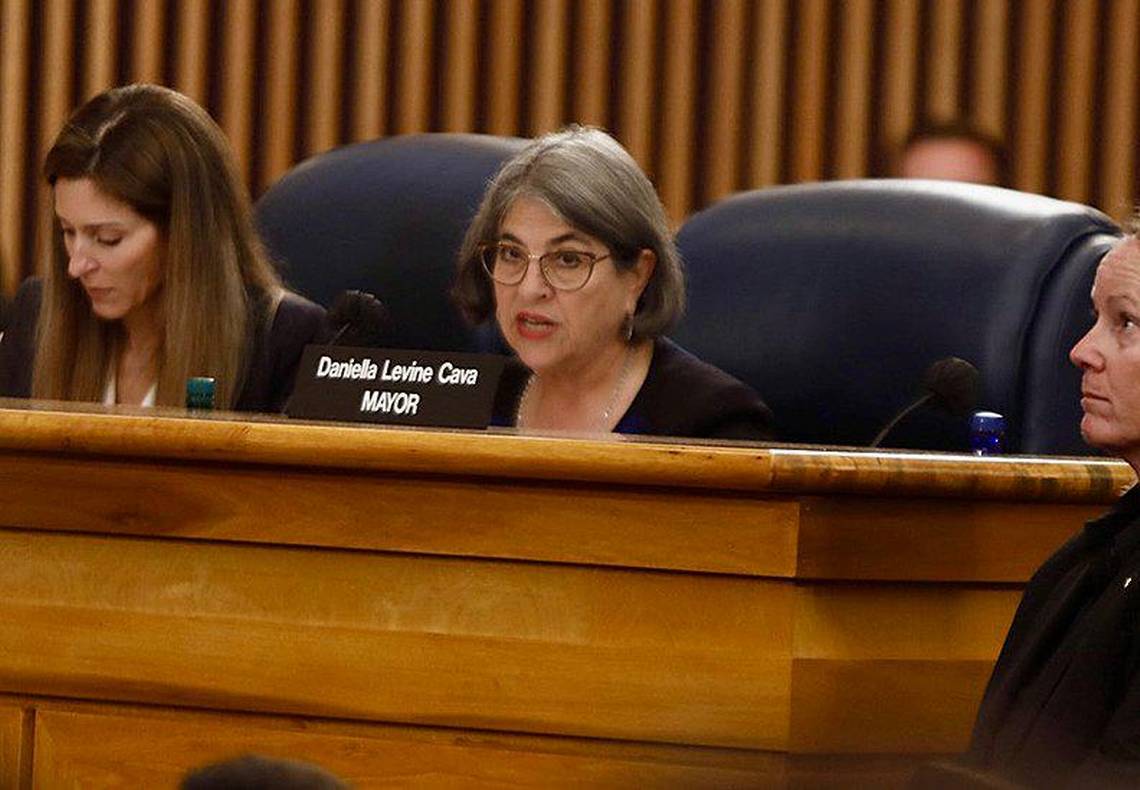As it was on October 1 prohibition of sleeping in public approaches, Miami-Dade County is moving to find emergency housing for its population of about 1,000 homeless people, who could otherwise face prison.
Under the law signed by Gov. Ron DeSantis in March, counties and cities will be legally responsible for banning unauthorized camping in public places. Local governments across the state are now scrambling to get their homeless populations off the streets.
A memo circulated in September by the office of Miami-Dade Mayor Daniella Levine Cava highlighted the possible use of “tiny houses” as short-term crisis housing that could reduce pressure on prisons of the count.
At about 450 square feet each, the 175 two-bedroom units could provide stable housing to hundreds of homeless Miamians. Miami-Dade County’s homeless agency, the Homeless Trust, will manage the modular units, if county officials approve their implementation.
Ron Book, president of the Homeless Trust, said the agency prioritizes purchasing air-conditioned units with bathrooms, kitchens and living rooms.
“If you’re going to build a tiny house project, it has to be a real house,” Book said.
The county has entertained similar ideas in the past, although a proposal to build 100 such homes in Virginia Key has stalled in 2022 amid pushback from community members.

More details about the proposed tiny houses, including their cost and where they would be placed, are unclear. But to county officials, their need is obvious, especially compared to the alternative.
The state’s camping ban also allows counties to designate areas for homeless “camps,” which can exist for a year. It must maintain an adequate level of sanitation, prevent illegal substance and alcohol use, and provide behavioral health services.
But the camps pose an inadequate solution, even in the short term, according to the county government. Levine Cava’s office described them as “full of concerns” that include less dignified standards of care, the exclusion of certain people in need, including those struggling with substance abuse, and the potential risks to security associated with mixing disparate homeless families.
In addition to this, the mayor’s memo says that it would be a costly and logistically difficult undertaking to open and operate a camp with a life of one year.
“I hope,” said Book, “that we shall never have a camp.”
In addition to small houses, the Homeless Trust is considering a series of crisis housing options to avoid the construction of camps.
Enlisting and funding faith-based organizations that already have some emergency shelter capacity, for example, could free up beds for people who would otherwise face jail time for sleeping on the streets.
Miami-Dade is also exploring expanding its existing shelter capacity to create immediately available crisis housing for those who need it. According to the Homeless Trust, those centers have lower barriers to entry than traditional shelters and could be an option for those who would otherwise hesitate to stay in shelters because of their stricter requirements.
Other proposals include conversion of hotels to housing, such as the proposal project in Cutler Bay for homeless seniors. This bill is up for a final vote on Tuesday.
Tiny houses remain a preferred option, but the clock is ticking. Book is working to pass the proposal through the approval process without compromising safety and health.
“The October 1st deadline is important,” Book insisted. “But the January 1 (2025) deadline” — at which point residents can petition local governments not to impose the camping ban — “is even more important.”
This story was produced with the financial support of supporters including The Green Family Foundation Trust and Ken O’Keefe, in partnership with Journalism Funding Partners. The Miami Herald retains full editorial control of this work.
